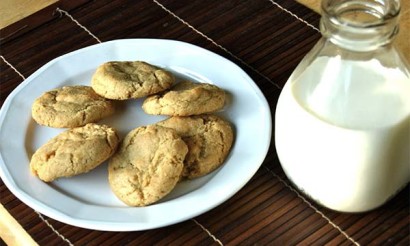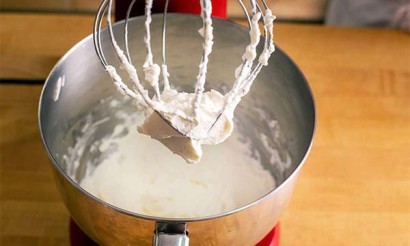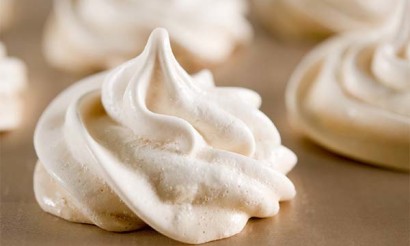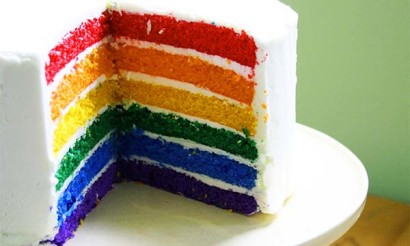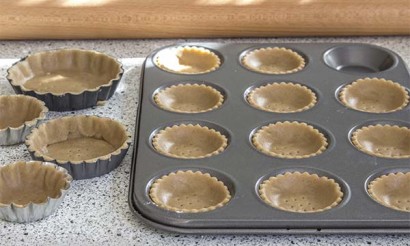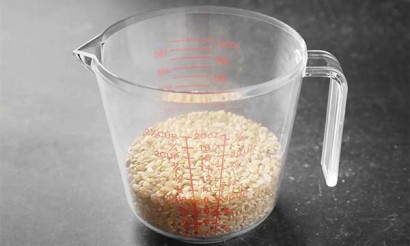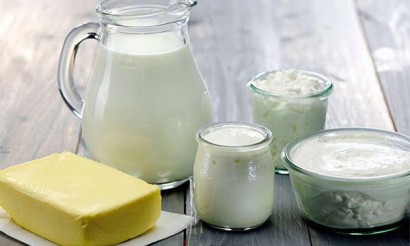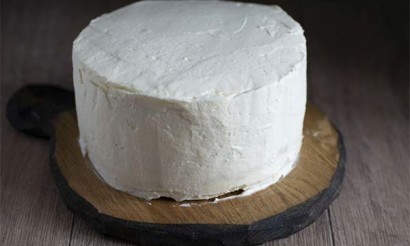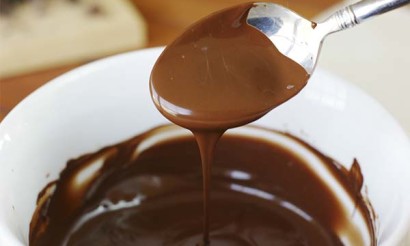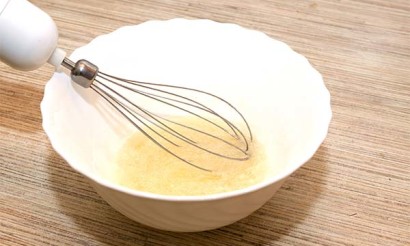How do you know when your wine has gone bad? Signs of a sour drink
The quality of a wine, its fullness of fruit and floral tones, is affected by aging, the sugar and alcohol content, and the weather in which the grapes were ripened. The natural drink, when consumed in moderate doses, improves blood circulation, reduces the risk of thrombosis, heart and vascular diseases. Sometimes, the taste of the contents of the bottle immediately after opening the cork or after a few days is unpleasant, causes rejection. Lovers of the noble drink are interested in what causes wine to spoil, how dangerous to health.
Can wine go bad?
Useful alcoholic beverage spoils when cork disease or improper storage conditions.
For more than six centuries, winemakers have been sealing bottles with corks made from oak bark. The eco-friendly natural material is light and resilient, allowing the wine to breathe. But, the bark of the cork tree has one significant drawback. It harbors colonies of bacteria, which release trichloroanisole in the process of life. This substance, even in small doses, kills the flavor of grapes. The drink gets the smell of wet cardboard, musty.
Wine deteriorates in organoleptic properties if storage conditions are violated:
- keeping the bottle under ultraviolet light, which destroys the tannins;
- Allow temperatures to drop below 5°C, which loses its aroma;
- placing bottles in the vicinity of brightly flavored foods.
These factors lead to an irreversible loss of vitality, a negative change in taste and odor of the drink.
The quality of alcohol deteriorates particularly quickly if the bottle is left open. After a few days the fruity and floral bouquet is replaced by a fading smell with vinegar notes. Oxygen, in large quantities entering the bottle, stimulates the acetic acid bacteria and triggers the oxidation process.
Signs of spoiled wine
A spoiled wine is recognized by characteristic signs:
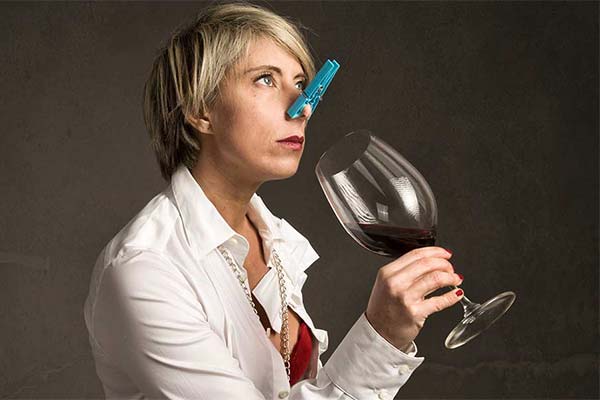
Loss of transparency
The sediment that sinks to the bottom in red aged wines and the turbidity that spreads throughout the liquid are not the same thing. A cloudy alcoholic beverage that leaves a film on the glass is not drinkable.
Unpleasant odor.
If there is a violation of manufacturing technology, alcohol smells of garlic, onions, hydrogen sulfide, when souring - vinegar, chemicals, acetone. If cork disease is to blame for the spoilage of the drink, the smell of wet cardboard or mold is clearly noticeable. Dry wine with a port-like aroma and cork that pops easily is caused by storage at high temperatures.
Color Change
White wine is more susceptible to sunlight and oxidation. If it turns brown, it is hopelessly spoiled. The brown or brown color of red wine indicates it is of a solid age.
A pungent taste.
When tasting it, it is not difficult to distinguish between quality alcohol and unfit for consumption. A tainted beverage tastes sharply sour, bitter, or astringent, like a strong brewed tea. There may be chemical overtones due to problematic preservatives.
Re-fermentation.
If a wine, other than sparkling wine, is bubbling, it means that after bottling, oxygen got into it and secondary fermentation began.
Another sign that a wine is not worth buying is mold on the cork on the inside. Moldy fungi transmit a distinctive smell to the contents of the bottle, even if the liquid has not touched the cork.
Can you drink spoiled wine?
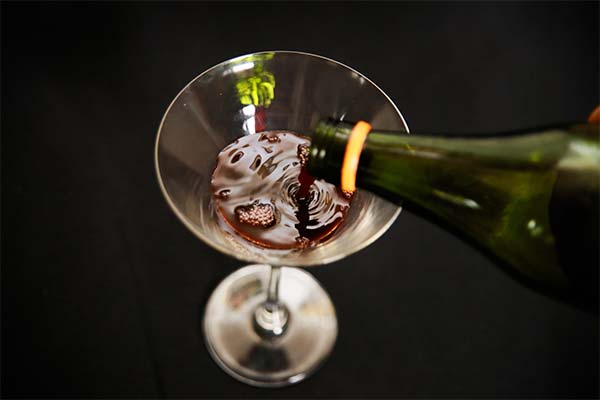
Store-bought or restaurant-ordered spoiled wine is subject to return. Intoxication of the body occurs not only from poisoning by ethyl alcohol, but also from low-quality surrogate, sour or expired alcoholic beverage, which can accumulate hydrocyanic acid.
To avoid harming your health, avoid wine with a pungent, unpleasant odor, sour, musty or chemical taste.
What you can do with sour wine
Fermented and sour wine should not be thrown away. Leaving the bottle open for a couple of weeks at room temperature produces wine vinegar.
In home cooking, the seasoning is added to baked goods, sauces, vinaigrette dressing, seafood salad dressing. With vinegar marinate meat for kebabs, use in home canning. Sour white wine in the household:
- remove foreign odors in microwave ovens;
- Wipe the refrigerator, washing machine;
- remove the smell of onions from hands;
- disinfect vegetables;
- clean coffee pot filters, tea plaque in mugs.
Resveratrol in red beverage composition does not lose its rejuvenating properties after souring. Spun wine with polyphenols added to water before taking a bath relieves tension, strengthens blood vessels, improves metabolism, and improves skin color and texture.
Shelf life and conditions
The period of preservation of aroma and taste of wine depends on the quality and sort of raw materials, the technology of production, tightness of containers:
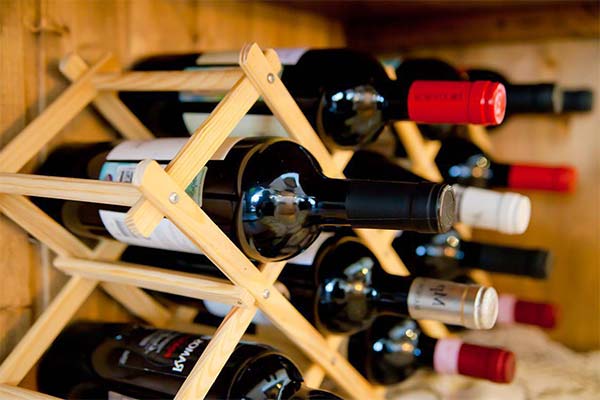
- The drink from red grapes in closed bottles is stored for 10 years.
- White wine from varieties of white, pink grapes with medium acidity does not sour for up to three years.
- Sparkling spirits with carbonic acidity - 2 years on average.
- The exceptions are Bordeaux, red dry Burgundy, which retain their quality for a century, white dry Burgundy, Chardonnay - 20 years.
- Red, white wines in open packaging with low tannins and high acidity do not spoil for 3 days, full-bodied - 5 days, champagne - a few hours.
- In the refrigerator, bottles of sparkling wine closed with vacuum corks retain their taste and useful properties for no more than 24 hours, red wine - up to five days, white wine - up to three days.
Sweet wines with high alcohol content do not turn into vinegar for up to two weeks. To reduce the surface area exposed to oxygen, the beverage is poured from the opened package into smaller bottles. They are placed horizontally on shelves.
The optimal conditions for wine storage are t - 10-16°C, humidity 65-80%, no sunlight, no temperature fluctuations, no vibrations, and no strange odors.
Suitable places to store noble beverages are a cellar or a wine cabinet with climate control.
In order not to risk your health, you should not drink spoiled wine. When choosing, use the knowledge of the signs of low-quality goods, follow the rules of storage, buy alcohol in specialized stores that value their reputation.
«Important: All information on this site is provided for informational purposes only. for informational purposes only. Please consult with your health care professional before using any of the recommendations. specialist before using any of the recommendations. Neither the editors nor the authors shall be liable for any possible harm caused by materials."

